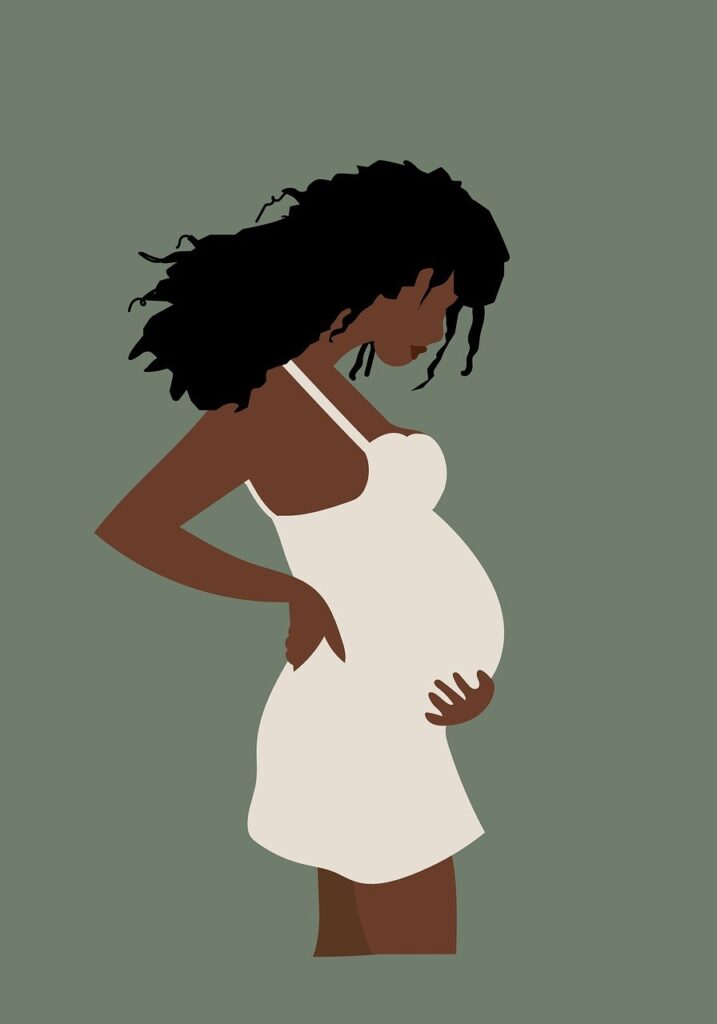Abdominal pain during pregnancy is a common concern and can range from mild discomfort to severe, alarming symptoms. Understanding the potential causes and knowing when to seek medical attention are crucial for ensuring the health and safety of both the mother and the fetus.
Normal Pregnancy-Related Abdominal Pain
- Round Ligament Pain: As the uterus expands, the round ligaments that support it stretch and can cause sharp, stabbing pains in the lower abdomen. This type of pain is usually brief and occurs on one side or both sides. It’s most common during the second trimester and typically resolves with rest and gentle stretching exercises.
- Uterine Growth: The stretching of the uterine muscles to accommodate the growing fetus can cause mild, cramp-like discomfort. This is a normal part of pregnancy and is generally not a cause for concern.
- Gas and Bloating: Hormonal changes during pregnancy slow down the digestive system, leading to increased gas and bloating. This can result in abdominal discomfort, which can be managed with dietary changes and over-the-counter remedies.
Potentially Serious Causes of Abdominal Pain
- Ectopic Pregnancy: An ectopic pregnancy occurs when a fertilized egg implants outside the uterus, usually in a fallopian tube. Symptoms often include sharp, one-sided abdominal pain, vaginal bleeding, and shoulder pain. An ectopic pregnancy can be life-threatening and requires immediate medical attention.
- Miscarriage: Pain associated with a miscarriage often includes cramping, lower abdominal pain, and vaginal bleeding. If a woman experiences these symptoms, she should contact her healthcare provider for an evaluation and possible intervention.
- Preterm Labor: Abdominal pain that resembles menstrual cramps, along with regular contractions before 37 weeks of pregnancy, could indicate preterm labor. Early intervention is crucial to manage preterm labor and improve outcomes for the baby.
- Placental Abruption: This condition involves the premature detachment of the placenta from the uterine wall, leading to bleeding and abdominal pain. It can cause severe complications for both the mother and fetus and requires urgent medical care.
- Appendicitis: Appendicitis can occur during pregnancy and presents as pain in the lower right abdomen, nausea, and fever. Diagnosis can be challenging due to the displacement of the appendix during pregnancy, but prompt treatment is necessary to prevent complications
- Preeclampsia: Characterized by high blood pressure and protein in the urine, preeclampsia can cause upper abdominal pain, especially in the right upper quadrant. It is associated with other symptoms such as swelling and headaches and requires careful management to prevent severe complications.

When to Seek Medical Attention
It is important for pregnant women to seek medical attention if they experience:
- Severe or persistent abdominal pain
- Severe cramping or pain accompanied by bleeding
- Pain that is accompanied by fever, nausea, or vomiting
- Sudden or severe pain in the upper right side of the abdomen
Management and Care
Management of abdominal pain during pregnancy depends on the underlying cause. For benign conditions, self-care measures such as rest, hydration, and over-the-counter remedies may be sufficient. However, for more serious conditions, prompt medical evaluation and treatment are essential. Healthcare providers use a combination of clinical evaluation, imaging studies (such as ultrasounds), and laboratory tests to diagnose the cause of abdominal pain. They then tailor the treatment approach to address the specific issue while ensuring the safety of both the mother and the fetus.
Conclusion: Abdominal pain in pregnancy can be caused by a variety of factors, from normal physiological changes to serious medical conditions. Understanding the nature of the pain and recognizing warning signs are crucial for timely and appropriate care. Pregnant women should feel empowered to seek medical advice if they have concerns about abdominal pain, ensuring both their own health and the well-being of their baby are prioritized.

